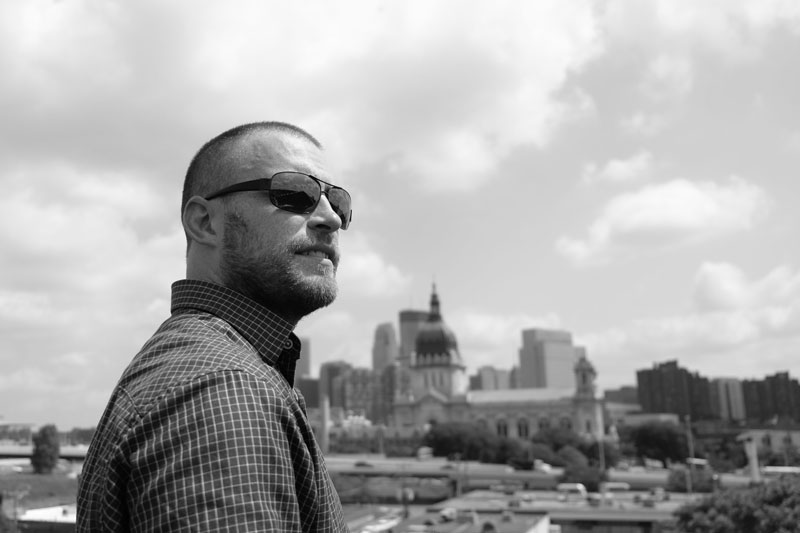I didn’t want to be an architect when I was eight years old. I wanted to ride dragons or become a wizard. I’ve yet to see a real dragon, though I’m still looking, and I was born a muggle, though I’m still hoping. So I day dreamed and practiced martial arts most of my youth. In my junior year of high school 9/11 happened and that set my course upon graduation. I joined the Navy, trained as a Hospital Corpsman, and grew up fast. After the military I returned home and managed and taught at a martial arts school. In time I decided I wanted to go back to school and start another chapter.
I attend Dunwoody College of Technology in Minnesota. It has a 100 year history as a renowned technical school. Its new Bachelor of Architecture program focuses first on the skills that allow students to be productive members in firms early on in their education. This direct, focused education attracts many older students. Some have found their way back to architecture. Others, like myself, didn’t find architecture until later in life. A new passion, but with deep roots.
I had gone to an open house at Dunwoody to look into their welding program. The architecture table caught my eye. I felt an immediate and powerful connection. I identified with the creative aspect of designing beautiful things, and the technical challenge of their assembly intrigued me. Most of all, the potential for those things to benefit the communities we live in called to me. In some way, shape or form, you’ll find these themes woven throughout many older student’s lives.
My first month at Dunwoody was a mix of excitement and trepidation. Many older students worry they won’t be able to keep up or integrate well with younger students. For me, I had never touched a CAD program and they had all used them in high school. That I wouldn’t have the aptitude for the various skills we were learning worried me. I had read all about how rigorous architecture school was. There are plenty of stories describing the all-nighters, tearing critiques, and intense competition. I wondered how I would manage on top of working. How would I adapt to a world of which I have zero knowledge and experience?
In actuality, pretty well. Experience in the work force develops invaluable skills necessary to be successful. Time management is a crucial skill older students bring with them. I have found that critiques aren’t scary things, they’re welcome and often where I learn the most. My professional experience helps me to dialogue in an open and honest way with my instructors. As for adapting and learning? The truth is that I have always been hungry for knowledge. Being around young, energetic, inquiring minds amplifies this trait and makes it a part of my everyday life.
My peers are just as impactful on my choice to study architecture as the education itself. Our studio culture calls for open collaboration, sharing of knowledge, and respect. These are traits that create a successful and enjoyable team based working environment. Nontraditional students often bring with them some of the wisdom and experience necessary to make those traits a reality in the school environment. The stronger our students are, the stronger our team is, the better our education is, the more impact we will be able to make on our communities beyond the classroom.










